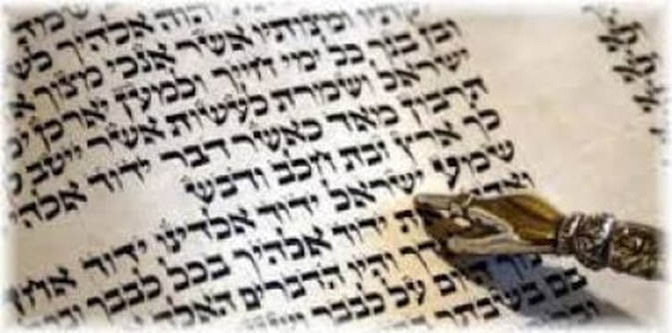Rabbi Jamie’s Corner
January 2022
By Jamie Hyams
Development Director
Hebrew Free Loan
“If you lend money to my people, to the poor among you, do not act toward them as a creditor; exact no interest from them.”
The text above comes from this week’s Torah portion, called Mishpatim, which lays out the laws that govern our individual responsibilities to each other. It is a “how-to” manual for creating a caring, just, and functional society. We learn how we should treat a worker when their job or period of service ends, and what our obligations are when our actions cause harm to people or property, whether directly or indirectly.
Back in 1897, the directive to charge no interest inspired the community leaders who founded Hebrew Free Loan to help others become and remain self-sufficient. Mishpatim is the foundation of Hebrew Free Loan. Sometimes we all need a little help to meet life’s challenges or take advantage of life’s opportunities. When we do, those who are in a position to offer a helping hand should not add insult to injury by charging interest as well.
I recently read a great quote from St. Augustine, a fourth century Catholic theologian and philosopher. “Pray as if everything depended on God, act as if everything depended on you.”
Regardless of your own individual concept of God* (and that is a conversation I would love to have over coffee), the idea here is a powerful one. We are the actors in making manifest the world we wish to come. We shouldn’t depend on outside intervention to solve our problems. We have the ability to build the society and community we believe would be most just. Are these political ideas? Cultural? Religious? Yes, and yes, and yes.
I’m reminded of a story about a man caught in rising floodwaters. He climbed onto the roof of his house and trusted God to rescue him. A neighbor came by in a canoe and said, “The waters will soon be above your house. Hop in and we’ll paddle to safety.” “No thanks,” replied the man. “I’ve prayed for help, and I’m sure it will come.”
A short time later the police came by in a boat. “Hop in and we’ll take you to safety.” “No thanks,” replied the man. “I’ve prayed, and I’m sure I will be saved.” Eventually a rescue services helicopter hovered overhead “The waters will soon be above your house. Climb the ladder and we’ll fly you to safety.” “No thanks,” replied the man. “I’ve prayed for help, and I’m sure it will come.”
All this time the floodwaters continued to rise, until soon they reached above the roof and the man drowned. When he arrived in heaven, he demanded an audience with God. “Why am I dead? I prayed for help to save me.” “Yes, you did,” replied God, “and I heard you. Who do you think sent you the canoe, the boat and the helicopter?”
Torah is a lot of things. Some people believe it was literally given to Moses at Mt. Sinai, while others believe it was divinely inspired but written by man. For others it is seen as the literature of an evolving people trying to make sense of the world around them. Whatever your thoughts on the authorship of the Torah, the narrative reminds us that our actions matter. The god of the Torah lays out a way of life, and the Israelites follow it (more or less). Without our actions, God’s words are just that, words. We are the builders. If we follow the way of life set out in the text and treat each other fairly, our community will flourish, and our society will be just. Pray as if everything depends on outside help, act as if everything depends on you.
For the past 125 years Hebrew Free Loan has been doing exactly that. We have been lending money interest-free and changing the lives of thousands of people throughout our community. I take deep pride in knowing that our predecessors were inspired by ideas in the Torah. While they prayed and hoped that the world would change, they also acted to make the hopes and dreams of community members come true.
* You may be wondering, “Why did she write ‘God’ and not ‘G-d?’’ The answer is that I follow Reconstructionist practice in writing out the letters G-O-D. Different streams of Judaism have different approaches. Writing “G-d” instead of “God” is a fairly recent custom in America. For many this is a sign of respect, and the custom is based on an interpretation of the commandment in Deuteronomy 12:3-4 regarding the destruction of pagan altars. According to the medieval commentator Rashi, we “should not erase or destroy God’s name and should avoid writing it (Rabbi Victor Appel).” To a Reconstructionist, the Hebrew letters that represent the name of God in the Torah are not the same as the English word “God,” so in this regard “G-O-D” is no different than “G-D.”

